Search titles
Displaying results 81 to 90 of 103.

Following the sun »
The pioneering years of solar energy research at The Australian National University 1970—2005
Authored by: Robin Tennant-Wood
Publication date: October 2012
In 1970 a small group of physicists at The Australian National University decided to veer away from the accepted and expected directions in energy research and pursued the emerging discipline of solar energy. Over the next decade ANU joined a small cluster of research institutions, including the CSIRO, UNSW and the University of Sydney, to emerge as a world leader in solar energy technology. This book traces the history of solar energy research at ANU over 35 years from its origin, its sometimes controversial early stages, through its flagship projects to its current status as one of the world’s best known solar energy research establishments. It is as much a story of the future as it is a history: Following the sun is the story of how an idea to pursue what was in 1970 a new and unpopular research path has come to underpin sustainable development in the 21st Century.
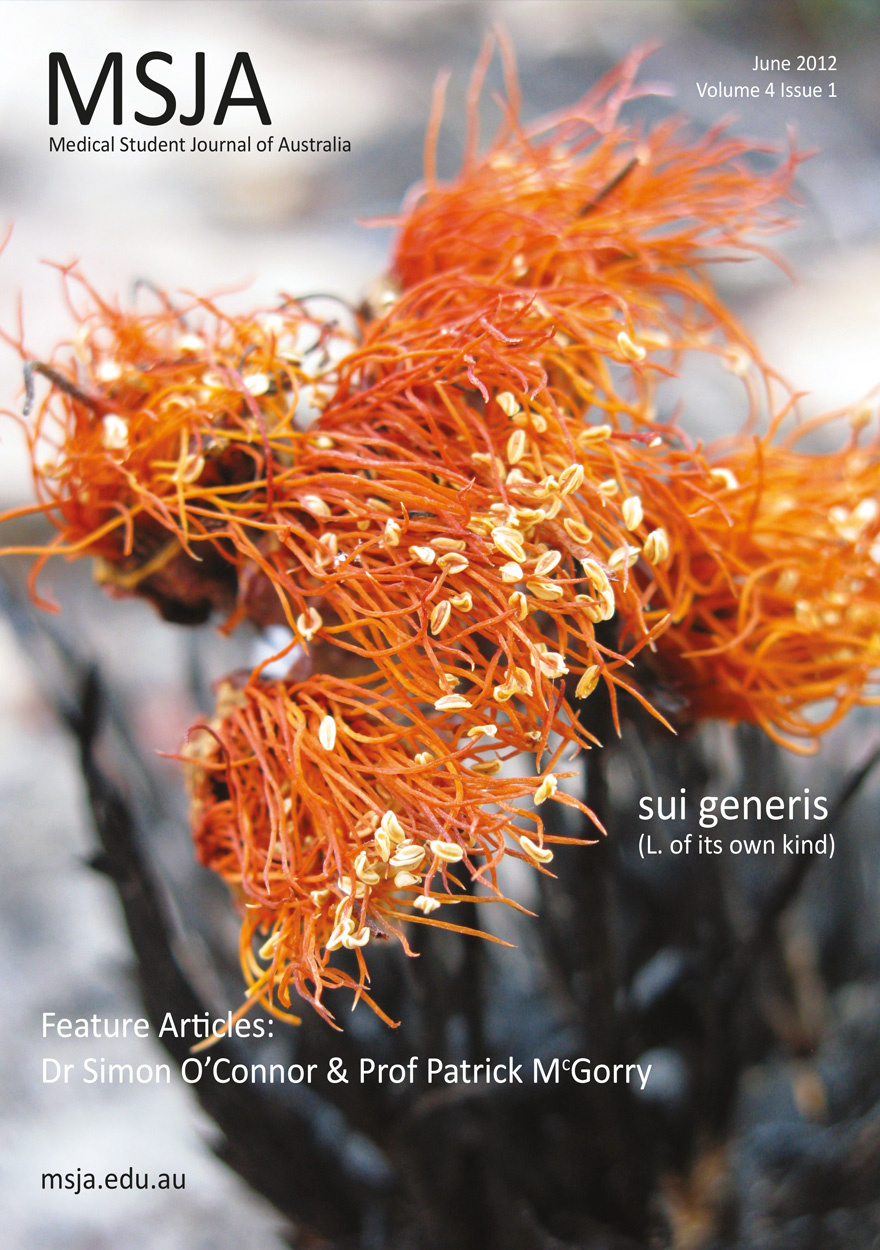
Medical Student Journal of Australia: Volume Four, Issue 1 »
Publication date: October 2012
The Medical Student Journal of Australia provides the medical school of The Australian National University with a platform for medical students to publish their work in a peer-reviewed journal, communicating the results of medical and health research information clearly, accurately and with appropriate discussion of any limitations or potential bias.
Download for free
Not available for purchase
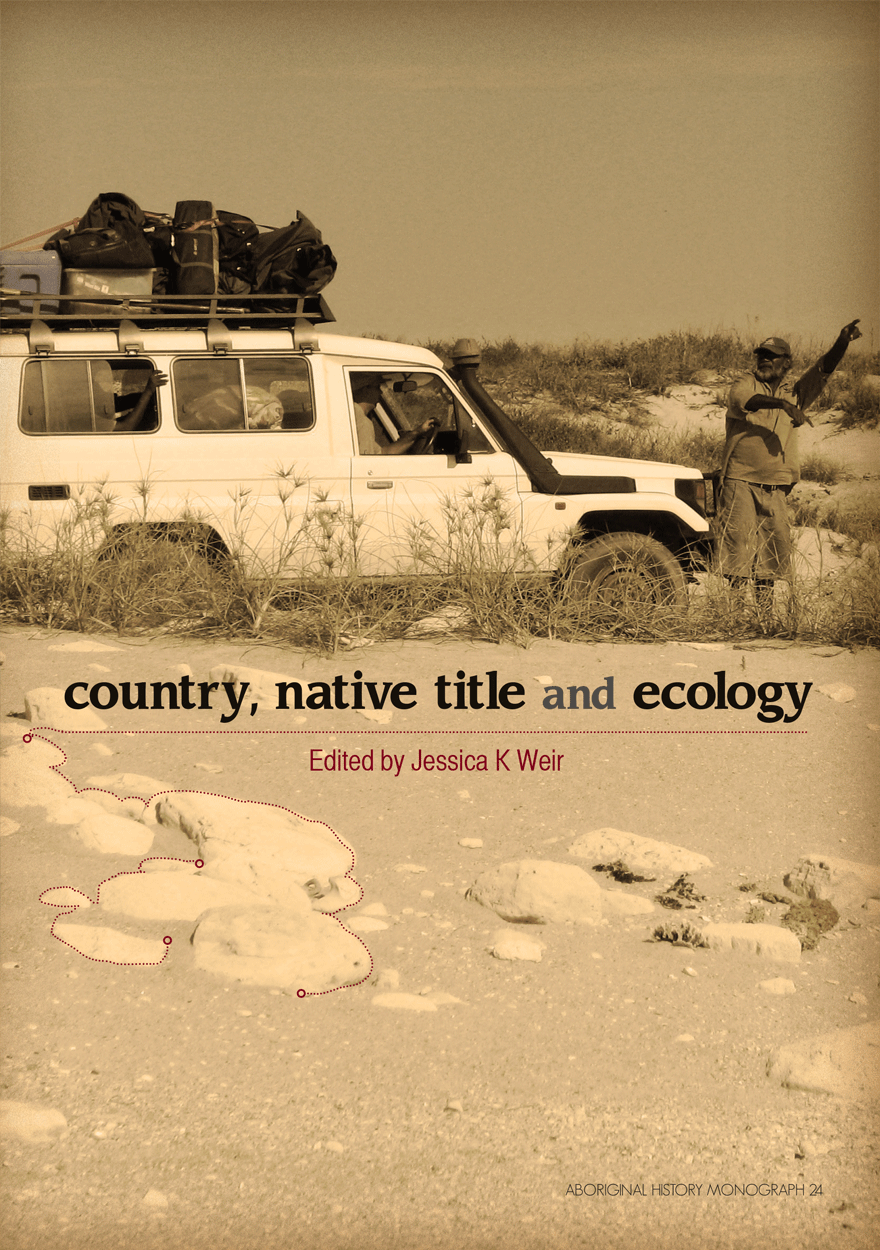
Country, Native Title and Ecology »
Edited by: Jessica K Weir
Publication date: March 2012
Country, native title and ecology all converge in this volume to describe the dynamic intercultural context of land and water management on Indigenous lands. Indigenous people’s relationships with country are discussed from various speaking positions, including identity and knowledge, the homelands debate, water planning, climate change and market environmentalism. The inter-disciplinary chapters range from an ethnographic description of living waters in the Great Sandy Desert, negotiating the eradication of yellow crazy ants in Arnhem Land, and legal analysis of native title rights in emerging carbon markets. A recurrent theme is the contentions over meaning, knowledge, and authority.
'Because this volume is scholarly, original and very timely it represents a key resource and reference work for land and sea managers; policy makers; scholars of the interface between post-native title responsibilities, NRM objectives and appropriate heritage protocols; and students based in the social sciences, natural sciences and humanities. It is rare for volumes to have this much cross-academy purchase and for this reason alone – it will have ongoing worth and value as a seminal collection.'
– Associate Professor Peter Veth, ANU College of Arts and Social Sciences, The Australian National University.
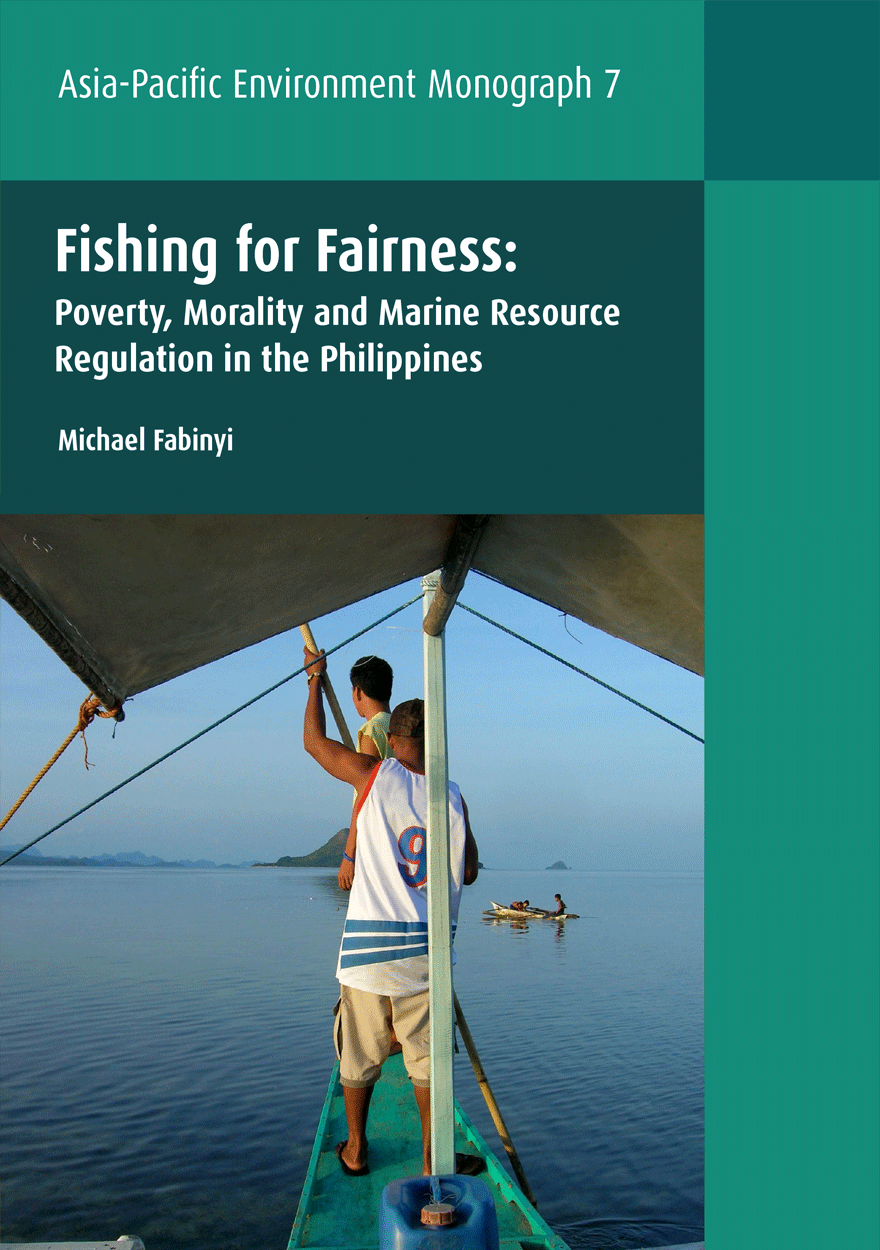
Fishing for Fairness »
Poverty, Morality and Marine Resource Regulation in the Philippines
Authored by: Michael Fabinyi
Publication date: January 2012
Fishing for Fairness develops an explicitly cultural perspective on environmental politics in the Philippines by analysing the responses of fishers to marine resource regulations. In the resource frontier of the Calamianes Islands, fishing, conservation and tourism provide the context where competing visions of how to engage with marine resources are played out. The book draws on data from ethnographic fieldwork with fishers, government and NGO officials, fish traders and tourism operators to show how the strategic responses of fishers to management initiatives are couched within particular cultural idioms. Tapping into broader notions of morality in the Philippines, fishers express a discourse that emphasises their poverty and the obligations of the wealthy to treat them with fairness. By deploying this discourse, fishers are able to reframe what are—on the surface—questions of environmental management into issues about poverty within particular social relationships. By using a cultural political ecology framework to analyse fishers’ responses to regulation, the book emphasises the distinctive ways in which marginalised people in the Philippines resist and reframe resource management initiatives. Fishing for Fairness will appeal to both academics and policy makers interested in marine resource management, political ecology, anthropology and development studies particularly throughout the Asia-Pacific.
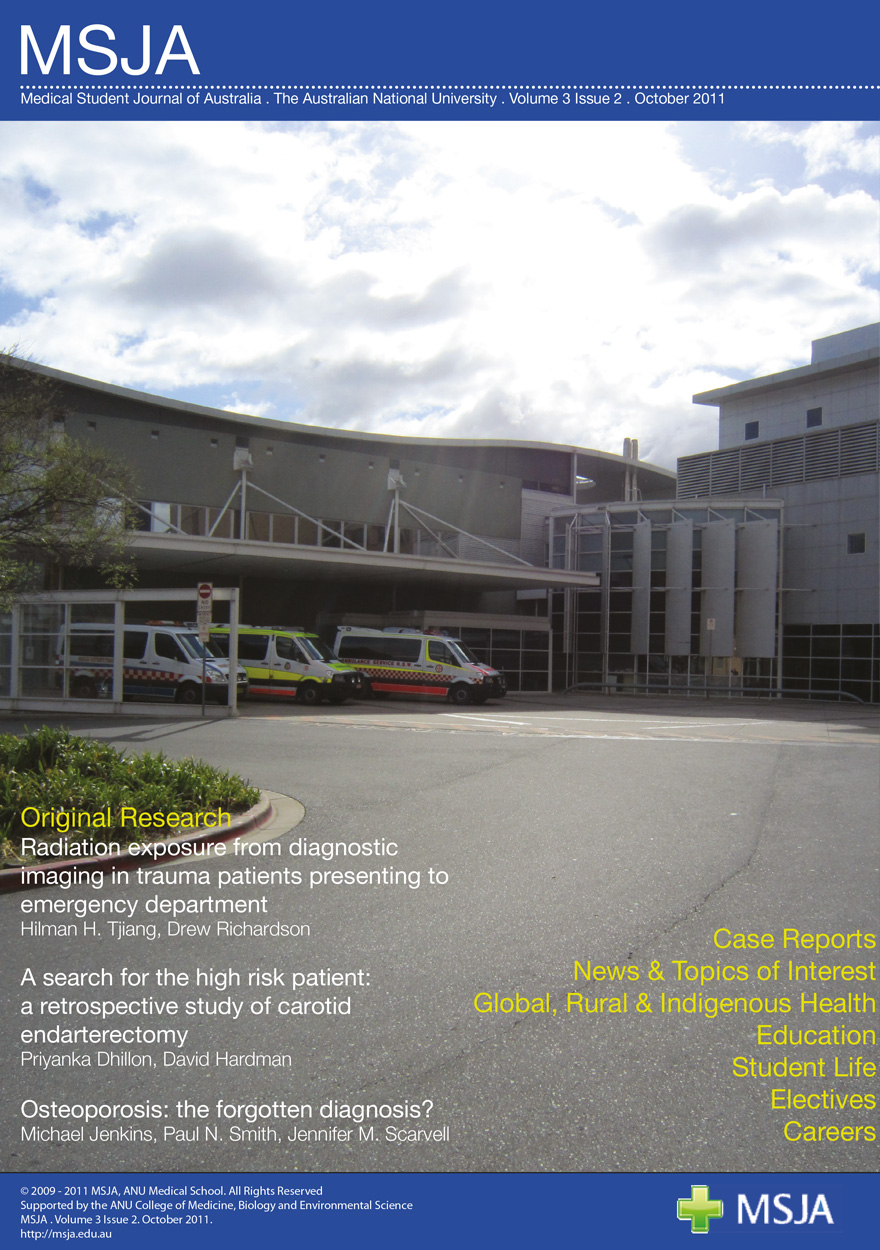
Medical Student Journal of Australia: Volume Three, Issue 2 »
Publication date: October 2011
The Medical Student Journal of Australia provides the medical school of The Australian National University with a platform for medical students to publish their work in a peer-reviewed journal, communicating the results of medical and health research information clearly, accurately and with appropriate discussion of any limitations or potential bias.
Download for free
Not available for purchase
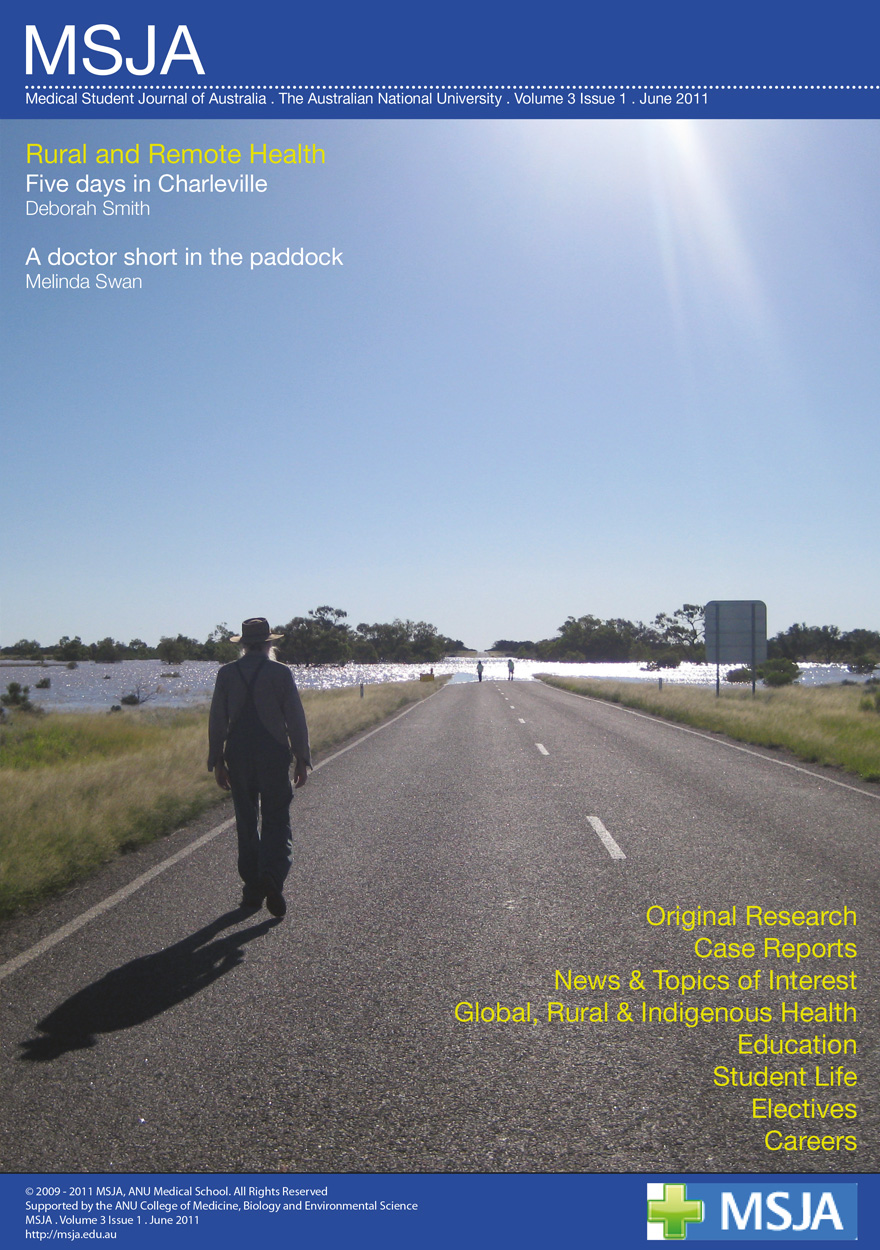
Medical Student Journal of Australia: Volume Three, Issue 1 »
Publication date: June 2011
The Medical Student Journal of Australia provides the medical school of The Australian National University with a platform for medical students to publish their work in a peer-reviewed journal, communicating the results of medical and health research information clearly, accurately and with appropriate discussion of any limitations or potential bias.
Download for free
Not available for purchase

Medical Student Journal of Australia: Volume Two, Issue 2 »
Publication date: May 2011
The Medical Student Journal of Australia provides the medical school of The Australian National University with a platform for medical students to publish their work in a peer-reviewed journal, communicating the results of medical and health research information clearly, accurately and with appropriate discussion of any limitations or potential bias.
Download for free
Not available for purchase

Green Carbon Part 2 »
The role of natural forests in carbon storage
Authored by: Sandra L. Berry, Heather Keith, Brendan Mackey, Matthew Brookhouse, Justin Jonson
Publication date: November 2010
This report is the second in a series that examines the role of natural forests and woodlands in the storage of carbon. Understanding the role of natural ecosystems in carbon storage is an important part of solving the climate change problem. This report presents a landscape-wide green carbon account of the ‘Great Western Woodlands’ (GWW), sixteen million hectares of mostly contiguous natural woody vegetation to the east of the wheatbelt in south-western Western Australia. For the first time, we provide an overview of the vegetation structure, climate, geology and historical land use of the GWW, and examine how these interact to affect the carbon dynamics of this region’s landscape ecosystems. An analysis of time-series of satellite imagery is used to develop a fire history of the GWW since the 1970s. These layers of environmental information, along with field survey data and remotely sensed greenness, are used to construct a spatial model to estimate biomass carbon stocks of the woodlands at the present day, and to infer an upper limit to the carbon sequestration potential of the GWW. A range of management options to enable protection of high quality carbon stocks and restoration of degraded stocks are evaluated.
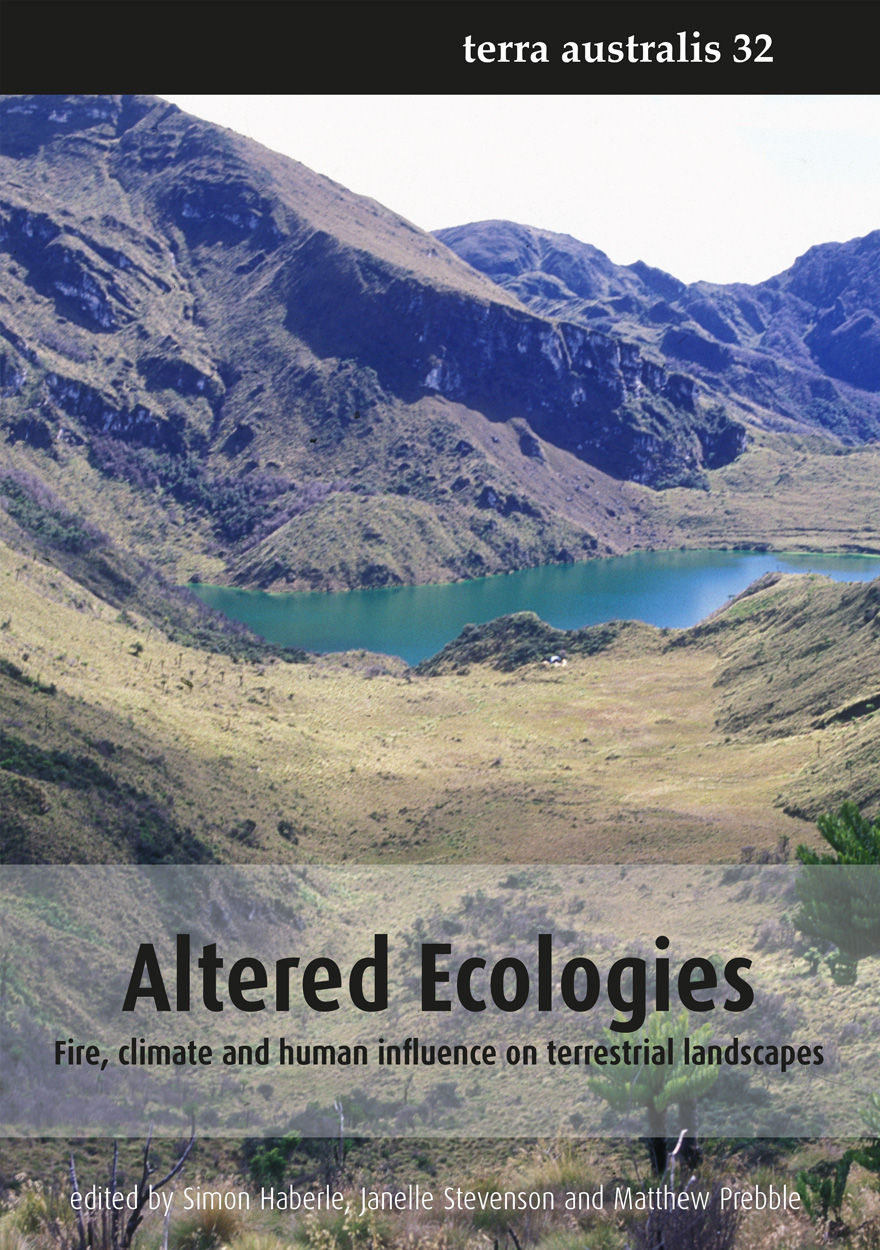
Altered Ecologies »
Fire, climate and human influence on terrestrial landscapes
Edited by: S. Haberle, J. Stevenson, M. Prebble
Publication date: November 2010
Like a star chart this volume orientates the reader to the key issues and debates in Pacific and Australasian biogeography, palaeoecology and human ecology. A feature of this collection is the diversity of approaches ranging from interpretation of the biogeographic significance of plant and animal distributional patterns, pollen analysis from peats and lake sediments to discern Quaternary climate change, explanation of the patterns of faunal extinction events, the interplay of fire on landscape evolution, and models of the environmental consequences of human settlement patterns. The diversity of approaches, geographic scope and academic rigor are a fitting tribute to the enormous contributions of Geoff Hope. As made apparent in this volume, Hope pioneered multidisciplinary understanding of the history and impacts of human cultures in the Australia- Pacific region, arguably the globe’s premier model systems for understanding the consequences of human colonization on ecological systems. The distinguished scholars who have contributed to this volume also demonstrate Hope’s enduring contribution as an inspirational research leader, collaborator and mentor. Terra Australis leave no doubt that history matters, not only for land management, but more importantly, in alerting settler and indigenous societies alike to their past ecological impacts and future environmental trajectories.
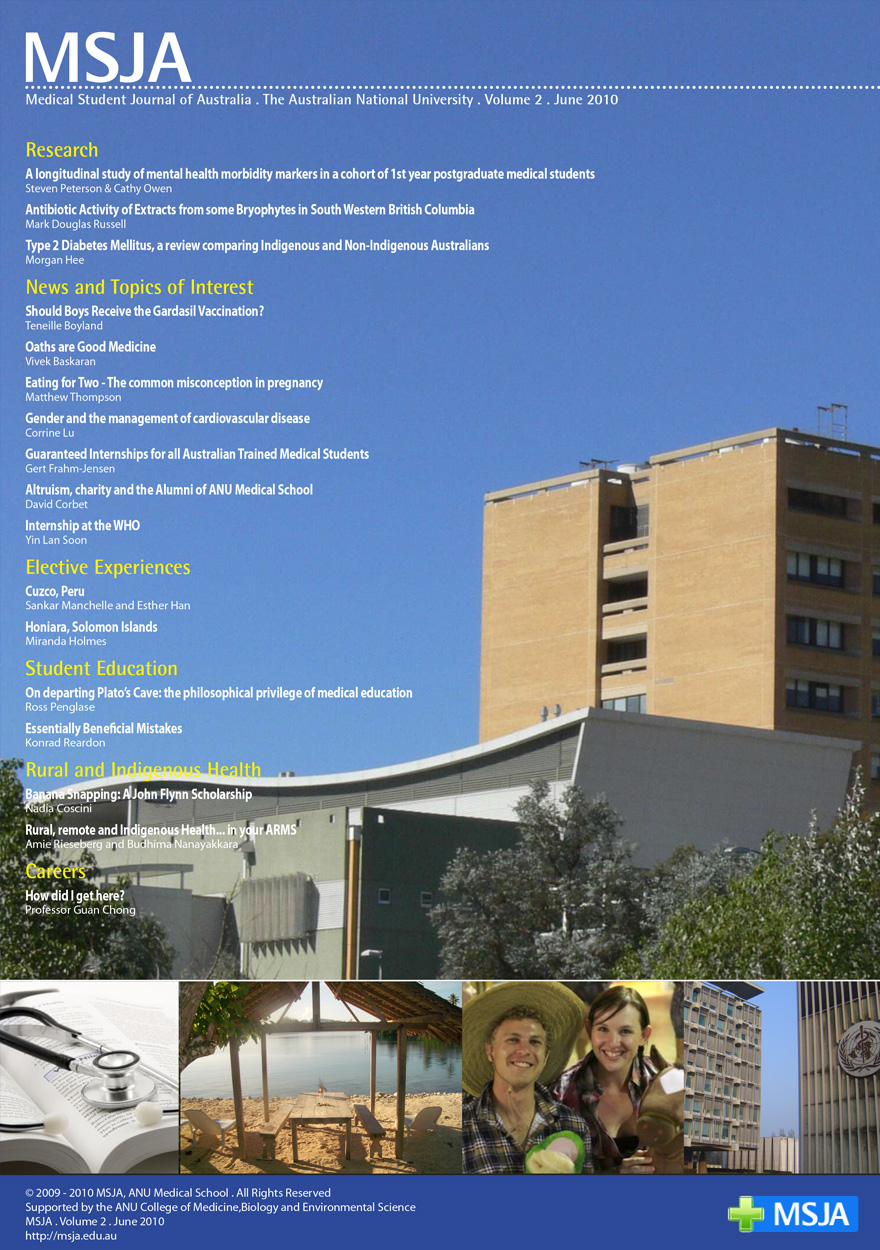
Medical Student Journal of Australia: Volume Two, Issue 1 »
Publication date: October 2010
The Medical Student Journal of Australia provides the medical school of The Australian National University with a platform for medical students to publish their work in a peer-reviewed journal, communicating the results of medical and health research information clearly, accurately and with appropriate discussion of any limitations or potential bias.
Download for free
Not available for purchase



